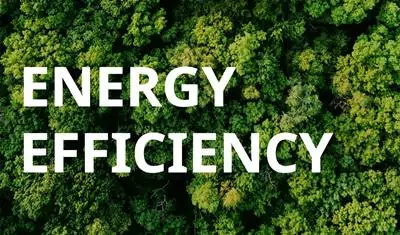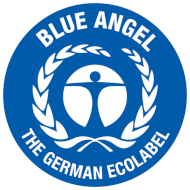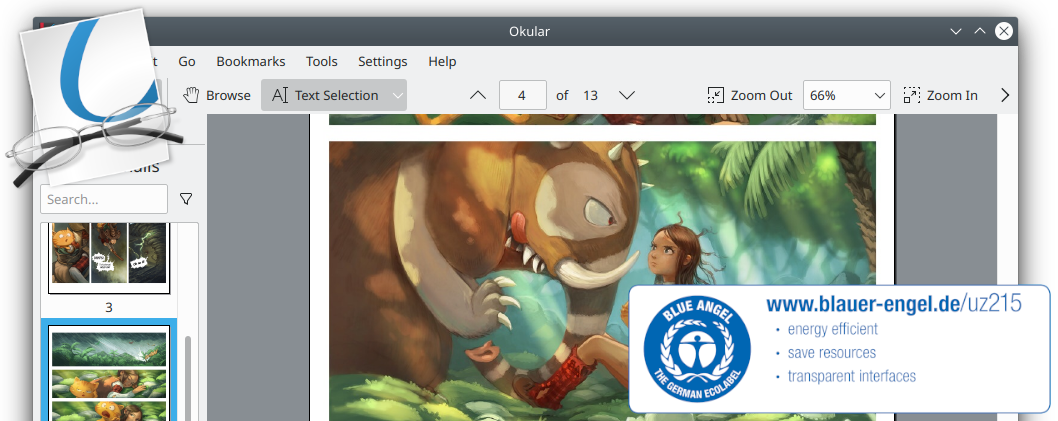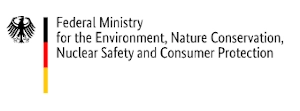KDE Eco - Building Energy-Efficient Free Software
KDE supports the FEEP and BE4FOSS programs to help free and open source communities produce more environmentally friendly software. The projects provide communities with guidelines and support to optimize software to be more energy efficient and have a longer life-span.
Let’s make energy efficient software and digital sustainability part of our community! We can live up to our responsibility for this and future generations!
Okular Awarded Blue Angel Ecolabel
In 2022, KDE's popular multi-platform PDF reader and universal document viewer Okular became the first ever eco-certified computer program! Read More
FOSS Energy Efficiency Project (FEEP)


FEEP is developing tools to improve energy efficiency in free and open source software development. Design and implementation of software has a significant impact on the energy consumption of the systems it is part of. With the right tools, it is possible to quantify and drive down energy consumption. This increased efficiency contributes to a more sustainable use of energy as one of the shared resources of our planet.
Blauer Engel For FOSS (BE4FOSS)
In 2020 the Umweltbundesamt (‘German Environment Agency’) released the award criteria for obtaining eco-certification with the Blauer Engel label for desktop software. Categories for certification include energy efficiency, extending the potential operating life of hardware, and user autonomy … all of which fit seamlessly with free and open source software.
The BE4FOSS project advances eco-certification for resource efficient software in the FOSS community. Obtaining the Blauer Engel label occurs in 3 steps: (1) MEASURE, (2) ANALYZE, and (3) CERTIFY.
- MEASURE in dedicated labs, such as at KDAB Berlin
- ANALYZE using statistical tools such as OSCAR (Open source Software Consumption Analysis in R)
- CERTIFY by submitting the report on the fulfillment of the Blauer Engel criteria
The benefits of obtaining the ecolabel include:
- Recognition of reaching high standards for environmentally-friendly software design
- Differentiating free software from the alternatives
- Increasing the appeal of adoption for consumers
- Promoting transparency in the ecological footprint of software

How you can help
- Follow 3-steps to Blauer Engel eco-certification: (1) Measure, (2) Analyze, (3) Certify
- Squash bugs labelled 'efficiency'
- Set up a measurement lab in your community
- Develop automation tools for energy consumption measurements
- Assist with statistical analysis and related tools (e.g., OSCAR)

Funding
The BE4FOSS Project was funded by the Federal Environment Agency and the Federal Ministry for the Environment, Nature Conservation, Nuclear Safety and Consumer Protection (BMUV). The funds are made available by resolution of the German Bundestag.
The publisher is responsible for the content of this publication.



